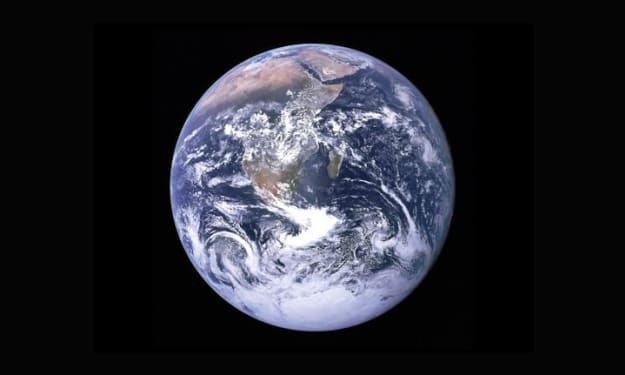2 days after the sky turned red in Fuzhou, a sudden earthquake struck Xinjiang, what should we do in the face of earthquakes?
Sudden earthquake in Xinjiang, 2 days after Fuzhou sky turns red

The sky turns red in Fuzhou.
The sky in Zhoushan has turned red twice since the night of May 7 and since May 11, and the sky in Fuzhou, Fujian has also turned red. Red is a symbol of "bad luck" in people's eyes. When the sky turned red, people began to search for the cause. Some people thought it was a precursor to an earthquake. Shortly after the sky turned red in Zhoushan, a 6.2 magnitude earthquake struck Taiwan Province. Is there a connection between the two?
On the night of May 11, the sky in Fuzhou, Fujian Province turned red, just like the sky in Zhoushan. People were surprised to find out that two days later a 3.1 magnitude earthquake hit Kucha, Aksu, Xinjiang. Whenever the sky turns red, an earthquake occurs. Is there a connection between the two?
The answer has nothing to do with this!
Science has found the reason for the sky turning red and it is not directly related to earthquakes. Why did the sky turn red? It turns out that some fishing boats were commissioning the use of redfish lights. Due to the special local environmental conditions, when the red beams hit the particles in the air, the scattering effect was amplified to the extent that it reflected the whole sky.

Near Zhoushan and Fuzhou, we spotted fishing boats that ran the red light. This is a fish light that helps people catch the autumnal swordfish, a fish that is sensitive to light. The strong light makes the fallfish active and converge towards the light source, and the red light makes the fallfish quiet and more conducive to our netting. With the two lights working together, it is easier to catch the fallfish.
What about earthquakes?
Earthquakes are a common natural phenomenon, related to a variety of factors such as the Earth's rotation and plate movements, and are a very complex geological activity. Whether it is an earthquake or a volcanic eruption, it is essentially the process of the Earth releasing energy. The energy released acts on buildings and people, and when they cannot withstand the energy of the burst, it naturally has a destructive effect.
Earthquakes often occur in seismic zones. A seismic zone is a place where earthquakes often occur. There are three major seismic zones on Earth, the Pacific Rim Volcano, Eurasia, and the Ocean Ridge Seismic Zone. Seismic zones are often located at plate junctions where plates are always in motion, so there are more collisions and compressions, so earthquakes are more likely to occur.
Each country has more small earthquake zones. For example, China has 23 seismic zones and most of the earthquakes are concentrated in the zones, while the rest of the country is more spread out. Xinjiang is a region where earthquakes occur frequently because it has five seismic zones. Although earthquakes are frequent in Xinjiang, they are small and there are no casualties because of the underdeveloped economy and the sparseness of the land.
It is the earthquakes concentrated in the east that we should be most worried about, as these are the areas where the crowds gather. If an earthquake occurs, it always causes huge damage, especially in terms of human casualties.
When an earthquake hits, choosing a sensible escape route and hiding in a safe area can help increase the survival rate and provide more time for rescuers. But many people do not understand this and always assume that earthquakes will not happen to them. This kind of thinking is dangerous and undesirable. The right solution is to know to save yourself from an earthquake and prevent it before it happens.
Earthquake self-rescue knowledge
Looking back at the Tangshan and Wenchuan earthquakes, too many of our compatriots lost their lives because of a single earthquake. Earthquakes are a force of nature that we can hardly shake or resist. At a time when technology is not yet developed, we can only rely on our knowledge to save ourselves. We can learn more about disaster prevention and mitigation during the National Disaster Prevention and Mitigation Day. If we do encounter a disaster, we may still be able to save our lives.
If there is an earthquake, the first thing to do is to understand what you are doing. If you are cooking, make sure you turn off the gas first to avoid an explosion caused by an earthquake; if you are outside, avoid tall buildings and run to an open area. The rest of the situation is more normal, such as resting in the living room and sleeping in bed.
This is the time to find a suitable escape route and shelter. The golden escape time from an earthquake is very short, it could be just a few seconds or just a minute. This is hard to judge. Especially for those living on the upper floors, as they cannot use the lifts, they often choose the right place to take shelter from the earthquake rather than run downstairs.
If you want to escape, be careful not to take the lift, take the safe passage and be careful not to crowd when there are many people to avoid trampling accidents and increased casualties. What if the building is about to collapse in the process of going downstairs? This is the time to choose the corner, which is a protected area where triangles are easily formed during an earthquake. Similarly, when we are at home, we have to look for corners, such as kitchens, bathrooms, toilets, and other places with little space, where the chances of survival will be greater.
Once you have found a suitable spot, hold your head with both hands to protect key areas. Also, cover your mouth and nose with a towel to prevent inhaling dust and damaging your lungs. Try to curl up for the best chance of survival in the most comfortable position and with the smallest footprint.
How do I save myself if I'm buried?
After an earthquake, judge your physical condition. If you can, gather your clutter, cover your mouth and nose to keep breathing, calm down, and stay calm.
If you find yourself unexpectedly injured, don't panic. Try to conserve your strength. If you can, apply pressure to the wound to prevent bleeding to death.
If you settle down, find as much water and food as you can to ensure you can survive, and make sure you save water and food and eat less to ensure you can live a little longer.
After that keep trying to make contact with the outside world, usually by making sounds. Rescuers are more likely to hear if they have a mobile phone that can play a song or something harsh; or by banging on objects such as metal to make a harsh sound. It is generally not recommended to make noise by shouting as it is too tiring unless you can be sure that the rescue team is up there.
If you can't make contact with the outside world after trying for a long time, you can try to find your way of survival. You can move towards light or windy area, clear the debris slowly, or if you can't move forward, stop, save your strength and wait for rescue.
In short, stay calm, check yourself, find food, contact the outside world, gather your strength and wait for rescue.
About the Creator
Sukkning
Science will give mankind's greatest gift is? Is to make the power of humans believe that truth。
Enjoyed the story? Support the Creator.
Subscribe for free to receive all their stories in your feed. You could also pledge your support or give them a one-off tip, letting them know you appreciate their work.






Comments
There are no comments for this story
Be the first to respond and start the conversation.